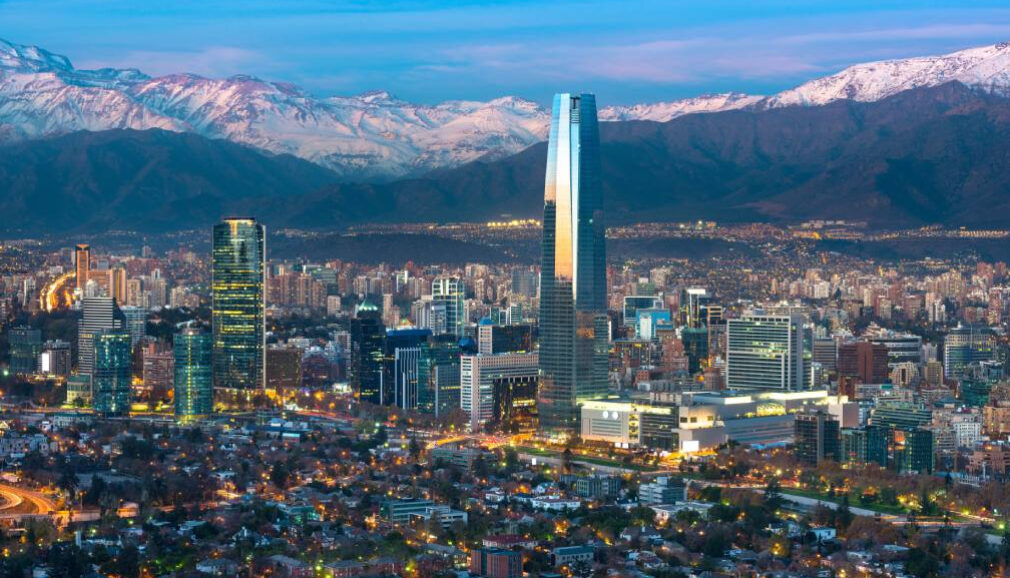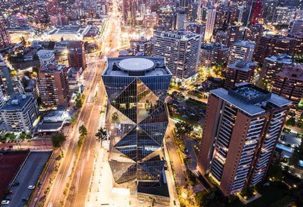
Essential information

InvestChile portfolio closed 2024 with a record figure: up 68%, reaching US$56.2 billion, driven by green hydrogen

The energy sector accounted for the largest number of investment projects last year, and the United States was the main country of origin for investor companies. InvestChile Director, Karla Flores, highlighted the creation of over 20,000 new direct jobs.
InvestChile announced that the portfolio of foreign investment projects supported by the agency reached US$56.2 billion in 2024, the highest level since its creation. This figure, a 68% increase compared to 2023, is associated with 474 projects from foreign companies at various stages of development and the creation of over 21,000 potential direct jobs.
Of that total, US$14.5 billion corresponds to ongoing investment (initiatives already established and under development in the country). The 113 projects in this stage generated 4,605 high-quality formal jobs.
InvestChile Director, Karla Flores, noted that the increase is largely explained by projects related to the green hydrogen industry, which totaled US$25.6 billion as of the end of last year. “Chile has committed to becoming a significant international player in green hydrogen, with an international promotion strategy in key markets and opportunities that highlight our privileged conditions for producing a clean and sustainable fuel that is essential to combating climate change globally”.
“These figures demonstrate the success of this strategy, the agency’s work, and the consolidation of Chile’s leadership in sectors such as mining and technological infrastructure,” said Flores. She also emphasized the creation of jobs related to InvestChile’s efforts. “The potential creation of more than 20,000 direct and permanent jobs is concrete proof of the contribution of foreign companies to our economy, which directly benefits the Chileans people,” she affirmed.
According to Minister of Economy, Nicolás Grau, this confirms that Chile offers attractive conditions and investment opportunities related to the energy transition and climate change mitigation, which have garnered the interest of foreign companies. “Chile continues to stand out as an attractive investment hub in Latin America, and together with InvestChile, we are working to bring in companies that contribute to economic development throughout the entire country.”
It should be noted that 88% of the total investment in InvestChile’s portfolio (equivalent to US$49.5 billion) corresponds to projects located outside of the Santiago Metropolitan Region.
Performance by sector
Investments by foreign companies supported by InvestChile are focused primarily on three sectors: energy, with US$36.8 billion; mining, with US$8.6 billion; and global services, with US$5.4 billion. Both the energy and mining sectors experienced growth compared to 2023, with increases of 131% and 6%, respectively.
Other sectors that registered increases in investment amounts were infrastructure, with a 130% rise, reaching US$3.4 billion; and the food industry, which reached US$1.3 billion, a 41% increase compared to 2023.
It’s also worth highlighting potential job creation by sector, which at the end of 2024 was led by global services and technology, with 8,325 potential jobs; followed by mining with 5,882 jobs; and in third place was energy, with 3,304 jobs. In all these sectors, potential job creation grew compared to 2023: 3% for global services, 22% for mining, and 157% for energy.
United States at the forefront
Regarding the countries of origin for the foreign investment projects included in InvestChile’s portfolio, US companies led with US$20.5 billion, followed by Austrian companies with US$11.1 billion, and Canadian companies with US$6.3 billion.
In the case of these three countries, the 2024 investment amounts surpassed those of the previous year. The United States registered an increase of 107% and Canada 18%, while Austria ranks among the leading countries of origin for investment for the first time. In 2023, the European country had only US$52 million in the agency’s portfolio. This situation underwent a dramatic change last year with the initiation of the HNH project by Austria Energy and Ökowind, valued at US$11.0 billion, in which Danish company Copenhagen Infrastructure Partners is also a partner.
Another noteworthy development is that, for the first time, InvestChile’s portfolio includes projects from Saudi Arabia, with a potential investment of US$1.4 billion.







